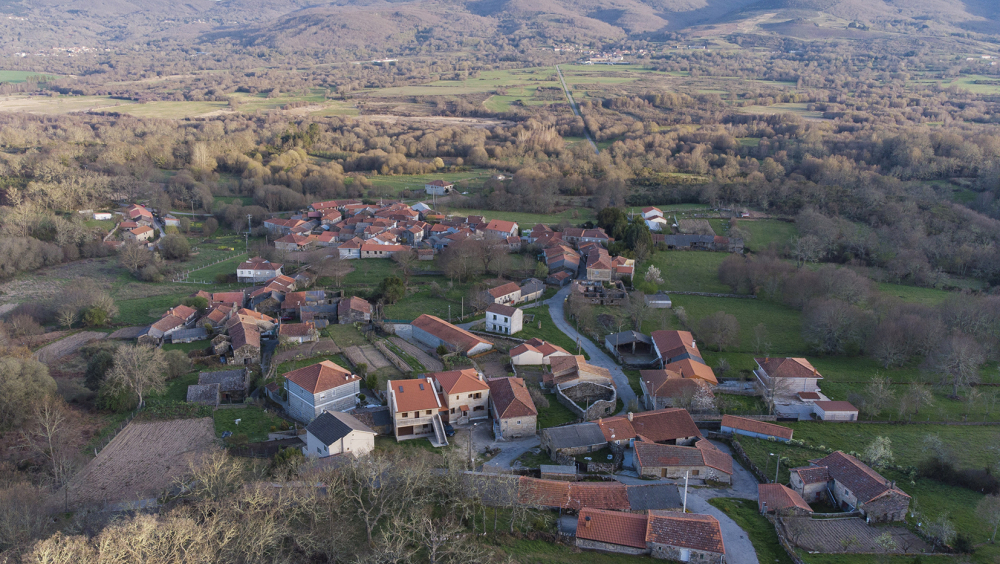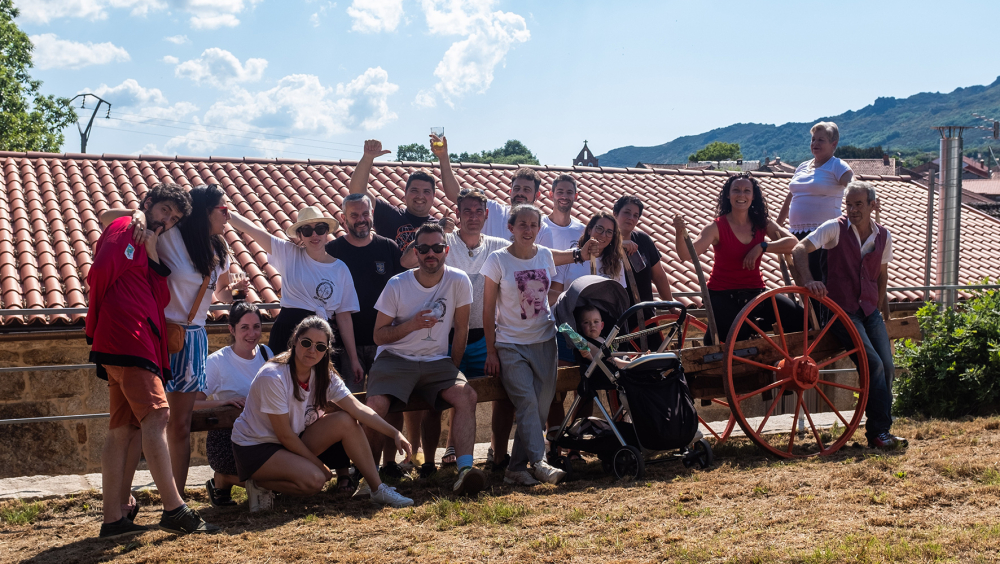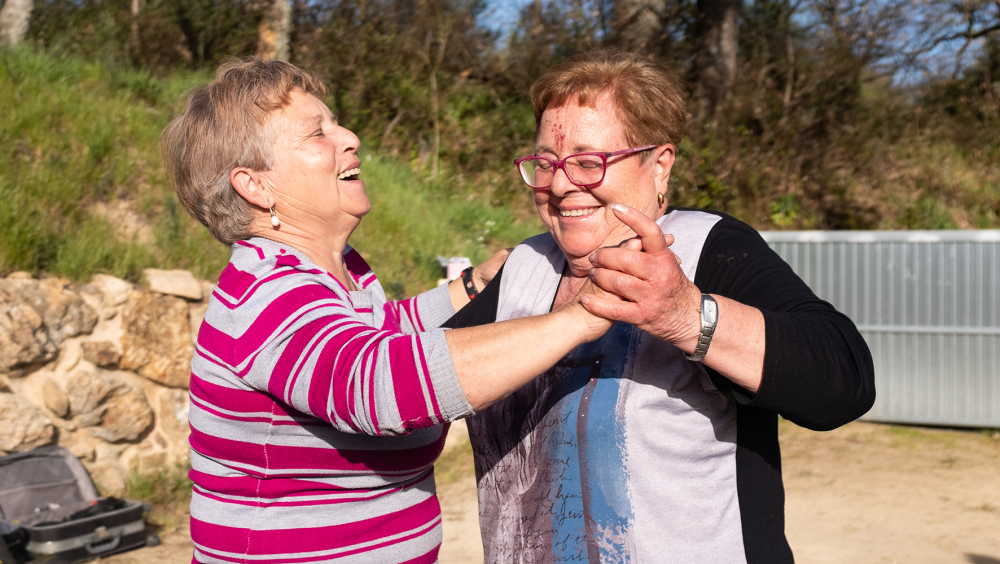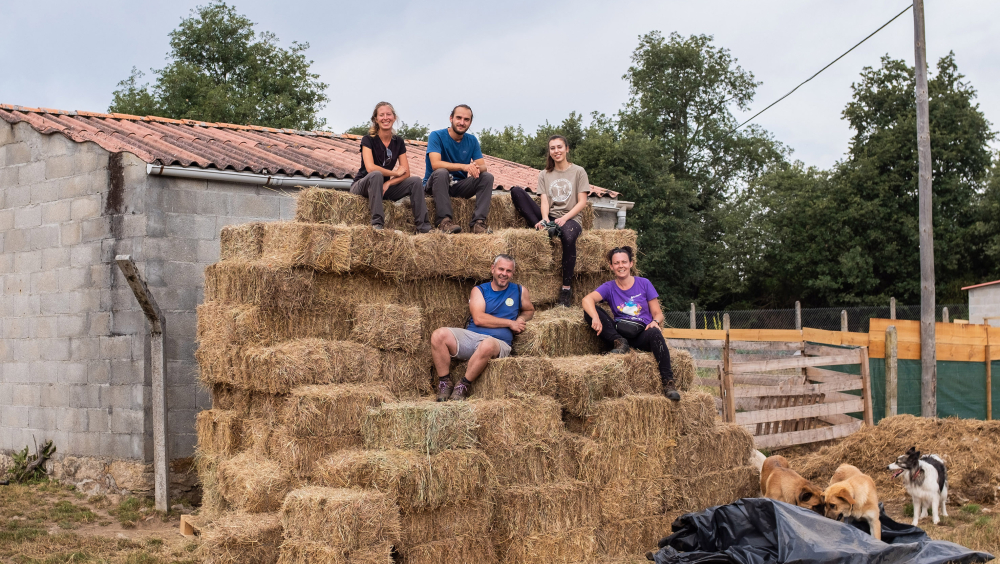The Couto Misto - A nearly forgotten story
For over 7 centuries, there once was a microstate between Spain and Portugal called the Couto Misto. It stood between southern Galicia, in the municipality of Baltar, and the Portuguese province of Montalegre. This tiny state was considered a free trade zone, in which people lived out of their commerce and could vote for their representative already in the 12th century. It is in fact one of the first examples of democracies in the history of Europe.
Due to its peculiar nature, this state was considered a free zone, with little to no taxes, a local production of low quality tobacco and spices smuggled throughout privileged commercial routes (the trekking which crosses the border is still called the “Camino Privileixado”). The Couto Misto was a place for the Spanish and Portuguese criminals to hide and the justice system was managed internally by the “Hombre de acordo”, a sort of mayor elected in the three villages. Just the blood crimes were handled by the Spanish or Portuguese justice, all the other matters were decided by the justice system of the Couto Misto. Above the three “Hombre de acordo”, there was one “Juez”, the legislative and political head of state.
Unfortunately, the story of the Couto Misto is disappearing with its few inhabitants, about 100 people scattered between the three villages, with a lack of official documents, which were lost during a French raid in the Spanish Kingdom during the 18th century. From there on, this story is being handed down mainly by the people living in these places, mainly elderly people who have never left their native land.
In ancient times, Meaus was one of the villages which belonged to a micro-state called Couto Misto. It is now a village in the Spanish municipality of Baltar, in the province of Ourense. Until 2019 it was inhabited by 16 people, mostly retired seniors. At the moment (in the year 2023), 30 people are now living in Meaus.
When Javi and Carol decided to move back to Javi’s native village at the beginning of 2020 with their two daughters, they would have never thought that in a couple of years they could have doubled the number of inhabitants of this remote Galician village.
In the last few years, Javi and Carol have worked on different ways to bring back life to their dying village and keep its history alive. They started a restaurant, brought workers from other parts of Europe and will soon open a co-living facility to bring digital nomads and host people for tourism purposes. They have also embraced a new lifestyle, completely different to the one that they had in Barcelona, starting to take care of animals, harvesting and planting their own vegetables. With the passing of time they are trying to become totally self-sufficient. Many volunteers, arriving from Italy, Belgium, Denmark, Greece, Wales and Germany have worked in Meaus in the last year, and some of them decided to stay and start a new life there. During 2022, Meaus also welcomed a Ukrainian refugee family of three from March to August. The Kuzmenko family is still in contact with some of the neighbours of Meaus.
This constant flow of people has awakened a mutual interest for the future of the village. For instance, last November, two Italian volunteers decided to exhibit in the abandoned school of the village, a photographic installation with ancient photos belonging to the Araujos, a large family who used to live in the village in the past and had members all across Europe. This space became, for a few hours, a place for sharing between the inhabitants, the volunteers and even some relatives of the Araujo family who had never seen those photos.
In another occasion, Meaus became the stage for a theatre piece, with a play by the cultural collective Platea Lua which staged all across the village, the history of the Couto Misto. This event brought in Meaus people who had never heard about this story. This kind of live events and performances are in our opinion the way to go to help our purpose to spread the history of Couto Misto across Europe.
That is why we are seeking for an opportunity to organise a whole festival, based in the village of Meaus, of visual arts, performances and workshops with 3 to 5 cultural associations or cultural companies, 7 professional artists or artisans who will take care of the workshops, professional photo and video documentation and online communication prior to the festival. The estimated price for a 3 days festival is 9000€.
In an uncommon frame such as the former Couto Misto, the European spirit has brought new energies to a (soon to be) disappearing village. Different skills and mindsets have started to cooperate with the purpose to start new businesses and spread the peculiar history of this place. Also a part of the local population has started to understand the importance of keeping their village alive, and has started to help this cause by giving a shelter to the volunteers or giving their time and resources.
Amongst other things, the next projects that neighbours and volunteers will face, is the construction of an agriculture and rural life museum in a house left available by a neighbour, and the renovation of the common furnace of the village, which hasn’t been working for the last 50 years. These activities are vital in keeping alive the life of the village, because they combine the younger generation, mostly arriving from out of Spain, with the older inhabitants who can pass on their story and knowledge to young people who are willing to use their creativity to tell their stories and learn about agriculture or animal keeping.
Throughout history, European heritage is what teaches about our identity. As a continent and as a union, we tend to identify as hybrid populations who share the same values and privileges, but arriving from a different culture. It is in our interest to keep these hidden stories alive as much as we can. In this case, we want to keep alive the story of the Couto Misto, a state which was an example of democracy and peace during the internal conflicts between the Spanish and the Portuguese.
We want to develop, as a neighbourhood association, initiatives to teach about our history through art, talks, workshops and performances, for childrens and adults. In our brief history as an association we noticed enthusiasm when we brought theatre in our village, staging an itinerant theatre show about the Couto Misto, and decided that this is the way to go, aiming for a bigger event or a series of events, hosting culture professionals and spreading the world with communication material. These events will take place in the village of Meaus and in the nearby nature.
We would like to dedicate a whole weekend (late June 2023) of events, theatre, and practical workshops in the village of Meaus, bringing international theatre companies (for sure Spanish, Portuguese and Galician speakers), welcoming up to 500 visitors.
These events will be documented by professional photographers and videomakers, creating footage which will be helpful to organise further editions of these events and increasing the prestige of this venue and the general interest towards this story, this land and its people. We will document the process of how art and crafts can be able to keep this story alive, teaching to younger generations this peculiar story by living in the village for a day or two, stimulating curiosity and creativity.



